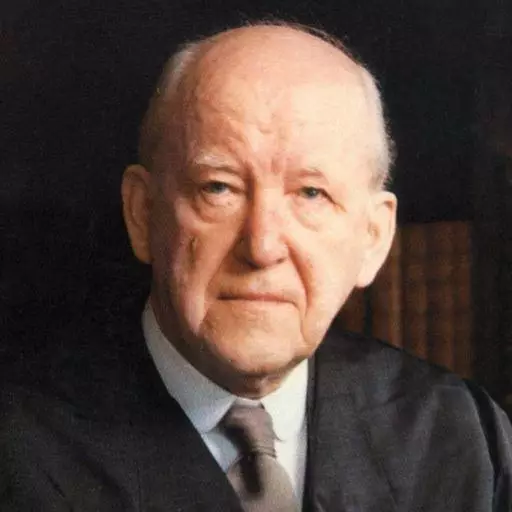
As the proclamation of God’s word is the task of every preacher, certain things must be avoided. These things creep into the preaching ministry and detract the man from his work. In this sermon titled “What to Avoid,” Dr. Martyn Lloyd-Jones continues his lectures on preaching and preachers and begins with a few observations on radio preaching. As this grew in popularity during his day, the radio posed new problems for the preacher which led to a sense of professionalism in the pulpit. The preacher must not be bound by time, always watching himself, tremendously interested in techniques. In contrast to this performance, he must forget himself as the Spirit leads his preaching. Other things to avoid in the pulpit include intellectualism and an affinity for too many polemics in the pulpit––always preaching what one is against as opposed to what one is for. Dr. Lloyd-Jones warns against an imbalance between exposition and exhortation. Some preachers expose the Scriptures with no exhortation to the people. Other preachers burden the people with exhortation with little exposition. As Dr. Lloyd-Jones explains what preachers must avoid, listen in and be challenged by his primary concern that the people of God receive the word of God in a manner that is clear.
April 8, 2025

The preacher must freely preach the word of God in a way that is natural, yet prepared. In this sermon titled “Illustrations, Eloquence, and Humour,” Dr. Martyn Lloyd-Jones addresses the preacher’s need for freedom in the pulpit. On one hand, some preachers are bound to a manuscript and never make eye contact with his people. On the other, the preacher is unprepared and forgets what he intended to say. He argues for a well-prepared outline. Additionally, as the man prepares his sermon, he must consider the use of illustrations. Many preachers focus heavily on stories as their sermon becomes nothing more than an exegesis of their own illustrations. The illustration in a sermon must never be an end to itself. They must be used carefully and minimally, only to illustrate the truth of Scripture. Dr. Lloyd-Jones continues his lecture with thoughts on eloquence and humor. While the apostle Paul was eloquent, eloquence was never his goal. We should be wary of preachers who are more concerned with how something is said rather than what is said. The same applies to humor. A humorous individual will certainly, and naturally, use humor in the pulpit. But this should never become the goal in preaching.
April 7, 2025

The shape of the sermon should reflect the goal of any sermon. The shape is to show the original context, the meaning of a passage, and apply it to life today. In this sermon titled “Shape of the Sermon,” Dr. Martyn Lloyd-Jones discusses outlines, the main points of a sermon, the place and importance of headings, and the balance between the written and extemporaneous sermon. First, he warns against professionalism. Too many sermons have been ruined by one’s vain attempt to manipulate ideas to fit a clever sermon outline. Form is important, but it must never become more important than the sermon itself. Each point must inevitably arise out of the text. Dr. Lloyd-Jones then addresses the tradition of writing out a sermon, addressing its benefits and its dangers. Finally, he deals with the topic of using quotations in sermons. His concern lies in the motivation behind such a practice. Never should the preacher’s concern be an appearance of scholarship or intellectualism. The sermon must always be prepared for a mixed group of people, helping everyone in the congregation. Overly academic notions should, therefore, be avoided. Listen in as Dr. Lloyd-Jones instructs his students on the importance of the sermon’s shape, content, and structure.
April 6, 2025

The charge to stand in front of God’s people and faithfully deliver God’s word is a serious calling. Congregations can understand and sympathize with the sheer weight of this task. Often, however, what is missed by Christian laypeople is the mental labor of sermon preparation from which faithful sermons emerge. The Christian minister is overwhelmed with decisions during this time that he may not be prepared for through theological education alone. And an honest minister might wonder if he is doing this part of his job correctly. In this lecture on preparing a sermon, Dr. Martyn Lloyd-Jones considers some of the mechanics of sermon preparation such as topical preaching, expository preaching, and tips for covering the whole counsel of God’s word. Working under the framework of Christian liberty and the freedom of the Holy Spirit, Dr. Lloyd-Jones talks about the pros and cons of other topics such as preaching through a catechism, the mechanics of sermon series, evangelistic opportunities through the church calendar, and holiday sermons.
April 5, 2025

The vocation of a minister is unique. A minister does not leave his work behind, whether late at night or on vacation. A minister is a man who is always preparing; he never frees himself from his calling because everything he does finds relevance to his work. How then does a preacher organize his life in light of this reality? What are some practices that will aid the minster in his preparation for preaching? The key factor, says Dr. Martyn Lloyd-Jones, is for the minister to know himself. In this lecture on the preparation of the preacher, from the “Preaching and Preachers” lecture series, Dr. Lloyd-Jones articulates several points for ministers to consider as they labor to prepare for weekly preaching. Under this guiding principle of knowing one’s own temperament and personality, he encourages pastors in the fundamentals of prayer and Bible reading. Also in this lecture, Dr. Lloyd-Jones challenges pastors to other kinds of reading. Whether it is devotional reading of the Puritans, or more intellectual material such as theology, church history, or apologetics, the overarching goal is to prepare the minster for his pulpit ministry. Listen as Dr. Lloyd-Jones outlines a blueprint for personal preparation that will benefit the minister as well as the congregation.
April 4, 2025

Fallen nature is such that human beings can seek to justify themselves before God by any means. Christian ministers know that faithful attendance on Sunday morning, while essential to Christian spiritual maturity, does not guarantee the eternal destiny of a person’s soul. A person can spend their whole life in a pew and still not have saving faith. Yet, how often do preachers neglect regular preaching of the gospel to their own congregation? In this sermon titled “Character of the Message” from “Preaching and Preachers” lecture series, Dr. Martyn Lloyd-Jones explores this dynamic of evangelistic preaching by ministers. It is true that even Christians can benefit from this kind of preaching. Nothing deters self-satisfied Pharisees more than feeling the weight of their sin and hearing about God’s saving grace through Christ. Dr. Lloyd-Jones encourages pastors to be honest with their assessment of the congregation. While the pew should not dictate the pulpit, Dr. Lloyd-Jones insists that it is the duty of all Christian ministers to be truthful about the spiritual condition of the congregation. Listen as he challenges ministers to know their flock and to care for them where they are.
April 3, 2025

Dr. Martyn Lloyd-Jones stood at a significant turning point in the history of homiletics. While modern preachers often assume a fluid style of preaching for the sake of modern listeners, Dr. Lloyd-Jones warned against the rising tendency for the congregation to dictate from the pulpit. What is the relationship between the pew and the pulpit? How are preachers to understand their method of preaching in light of their congregation? In this sermon titled “The Congregation” from the “Preaching and Preaching” series, Dr. Lloyd-Jones cautions that ministers must not be swept away by objections to traditional pulpit ministry. He outlines the new arguments that were being promoted as the most effective way to reach modern listeners with the gospel. Responding point-by-point to these new homiletical methods, Dr. Lloyd-Jones counters them from a theological point of view by seeking to understand the nature of humanity, the unity of the church, and the role of the Holy Spirit in preaching. Always seeking to find balance, however, Dr. Lloyd-Jones also examines 1 Corinthians 9:19–23 and highlights the importance of flexibility within the pulpit. Listen as Dr. Lloyd-Jones helps preachers discern a balanced approach to preaching to a modern congregation.
April 2, 2025

Who is to preach? What is the call to ministry? These questions come naturally to any man who rightly feels the weight of delivering the word of God to the people of God. Can any man stand in the pulpit and preach? Are there problems with the increasing number of churches relying on lay preachers? In this lecture on the call to ministry, Dr. Martyn Lloyd-Jones tackles this controversial topic from his series on “Preaching and Preachers”. More than this, he challenges preachers to think deeply about the notion of calling. While the idea of calling is often used by Protestants, sometimes it remains ambiguous in meaning and empty, and without specifics on how to apply the idea in a concrete manner. With great clarity Dr. Lloyd-Jones outlines not just a definition of calling but how a man can begin to test his own calling. Dr. Lloyd-Jones considers further the training of preachers. He discusses various departments of theology such as systematic theology, the use of biblical languages, and church history. Listeners may find with Dr. Lloyd-Jones a surprising alternative to the dominant training model for homiletics. This lecture will benefit the listener whether they are a lay person in their church, a man testing his calling to preach, or a seasoned pastor trying to help other men discern their calling.
April 1, 2025

How much value is there in a sermon not delivered? Clearly, the mere research and writing of a manuscript or sermon outline cannot be considered preaching. Preaching is both the sermon and the act of delivering the message, says Dr. Martyn Lloyd-Jones. In this lecture on preaching, he focuses on the general elements preachers need to be aware of for their calling. While Dr. Lloyd-Jones avoids providing the preacher rules or regulations for preaching, he does propose a number of important traits and qualities required for proper delivery of the word of God to the people of God. Based upon his many years of experience, the British evangelical preacher shares perhaps some unfamiliar words of wisdom on preaching that contemporary preachers need. How does one approach the art of preaching? Have they thought about the role of authority, persuasion, or zeal in preaching? Does being serious about preaching mean being dull or boring? Allow Dr. Lloyd-Jones to help preachers think about their own approach to sermon delivery by listening to this lecture from the series on “Preaching and Preachers”.
March 31, 2025

In this sermon titled “Form of the Sermon,” Dr. Martyn Lloyd-Jones argues that all preaching should be theological. In both evangelistic preaching and general preaching, the preacher must know both biblical theology and systematic theology; without them the preacher risks error. But while content is of utmost importance for preaching, Dr. Lloyd-Jones states, the form of the sermon is equally important. Those who rightly value content in preaching can sometimes misunderstand the value and the art of composing a sermon. What form should theological preaching take? Does the preacher think of his sermon in the same way one thinks of writing an essay? If not, what is the difference? Is there a difference between a sermon and a lecture on theology? How about a commentary on the passage? Is there a difference between a biblical sermon and a running commentary on a text? Dr. Martyn Lloyd-Jones explores these questions in this important lecture on preaching. While the proclamation of sound doctrine is non-negotiable for preaching, sermons will not serve the people of God unless the form is equally considered. Listen as Dr. Lloyd-Jones helps preachers think through this important aspect in service of God’s church.
March 30, 2025

 Learn How
Learn How





